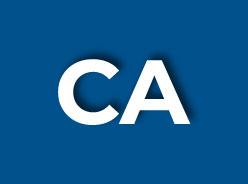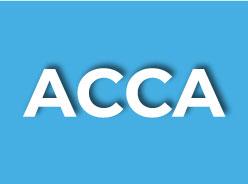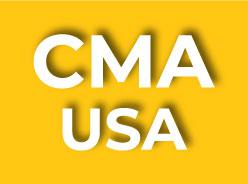How to plan your study leaves effectively before the CA Inter exams?
Congratulations! If you are exploring this blog it means that you have most likely cleared your CA foundation exams. You have crushed the first level and is preparing to take the next level in your journey in Chartered Accountancy which is CA Intermediate.
Now it's time to pull your socks up and prepare for your CA intermediate exams. If you wish to ace this level, you cannot tackle things at the last minute, you need to have a solid study plan. Why? Unless you have a proper methodology behind your CA inter preparation, then it will be pretty difficult for you to efficiently utilise your team and you could end up spending too much or may be very little time on some subjects.
In this blog, we will touch upon some practical and actionable CA inter preparation tips which have been beneficial to many CA inter students in a great way. This list will also help to make sure you reach your goals well and are well relaxed the day before your exam. In this article we will discuss in depth about various CA interstudy plan tips for first timers and for students who are repeaters, as the strategy needed for both are different and one needs to approach it with a different mindset as the strategy needed are very different in both the cases.
For those who are attempting the CA inter exams for the first time, before we touch upon the tips let us first talk about the basics of CA inter so that you can kick of the CA inter exam prep in the right manner. If you are a repeater then you needed;t go through these steps, feel free to jump to the next section.
CA inter exam basics
The CA intermediate courses have 8 papers, out of these 4 papers are further subdivided into two sections each. Papers 2,4,6, as well as 7, have both descriptive and objective or MCQ type questions. The exam contains both objective as well as descriptive type questions, the objective questions would carry 30% weightage whereas are the rest 70% are descriptive.
It is very vital to understand the nature of each paper for a couple of reasons- whether its practical or theoretical. Students have their own preferences for the papers, some find practical subjects to be easier, whereas others have a knack for theory subjects. Even though both practical and theoretical papers require equal attention, understanding areas where you are strong or weak at will help you understand and plan the syllabus better.
Also, keep in mind that there are no negative marks for MCQs. So it is very important to prepare and practice a lot of MCQs as it will help you to get the good scores you are after.
With that in mind let us take a quick look at the practical and theory papers
| Practical (Numerical based) | Theoretical |
| Paper 1: Accounting | Paper 2: Corporate Laws and Other Laws |
| Paper 3: Cost and Management Accounting | Paper 4: Taxation |
| Paper 5: Advanced Accounting | Paper 6: Auditing and Assurance |
| Paper 8: Financial Management and Economics for finance | Paper 7: Enterprise Information System and Strategic Management |
Please keep in mind that the practical papers could also include a few theory based questions, but the majority of the papers will be practical. But the other way around would hold good for theory papers.
How to get started for first timers
Let us reiterate, and remember that is very important to prepare for the CA inter exam preparation only with a properly sought out plan. But how should you create this plan?
- How many hours should I study when preparing for the CA Inter exam?
It totally depends on you! One of the first things that could stump you is how even for the most hardworking student when it comes to preparing for the CA inter exams is tackling Time. The question on most of your minds would be “How much time would I need to get prepared for my CA inter exams?” You may be getting overwhelmed hearing people mention how they spend 10-12 hours a day studying where as you are studying only for 5-6 hours every day. Ultimately it is not about the number of hours you spend in front of the books, but it is about how many hours hoe effectively you are able to study in the number of hours, which would differ from student to student.
The nature of your CA inter-study plan will vary depending on various factors such as starting your preparation, whether you are appearing for either just one group or for both groups, your strengths and weakness, and pace of learning will all come into play. You also need to take into account that you will have to spend time on revisions after you have covered the entire syllabus.
The rule of thumb is simple: If you start late, then you will need more hours to study
- Set your own timetable
Just like the time needed for preparation, it is not viable or fruitful for anyone to follow a timetable that has been created for another student. The internet is filled with sample CA inter-study routines and timetables, this needn’t work for everyone.
- Make your own hand written notes
If you are looking to score well in your CA inter exams, then there is no alternative to writing your own notes. Handwritten notes are your best friend for many reasons. From better retention of what you have studied to improve your presentation skills, hand written notes have many perks for your CA inter-preparation.
- Factor in time for revisions and mock tests
Revisions are a must and not an option. The same is the case when it comes to mock tests. So factor in enough time to your study plan. Even though taking more mock tests and rveisions will make you sharper, we all know that we may not have a lot of time left after we complete the complete syllabus. A great plan would be to keep 60 days aside during your revisions period (This should include two revisions) and should also include 2 or 3 timed mock tests.
How to get started for first repeaters
So, you werent able to clear the CA inter exams in your first attempt the last time. May be you have tried before as well. But the fact that you are still here shows that you are not ready to give up and are eager to crack it this time, this speaks immensely about your willingness to succeed.
It is very normal that as a CA inter repeater you are thinking to yourself “Why should I carry on and not quit?”. It doesnn’t matter how many times you have failed to crack the exams, what matters is that you understand the reason behind it.
Analyse your preparation and see if there is anything missing from your preparation strategy. Or is it that you are not enjoying the CA inter syllabus at all?
If the latter is the case then maybe you are not cut out ofr CA. CA does provide a very rewwarding career, but it not not the be all and end all of success. You can enjoy a fulfilling career in other fields of business and commerce without being a CA. You can check out other professionally and financially successful career paths such as financial advisory, investment banker, wealth manager, and financial analyst, amongst others.
But on the other hand if you think its was the lack of proper preparation then we can tackle those issues.
Most of the things we mentioned for CA inter first timers would be applicable to you as well. BUt you have something very important that they don’t have - which is experience.
You have already gone through the motions and are very familiar with the exam patters and know what to expect. Now it is time for you to use your knowledge to your advantage.
- If your preparation techniques didnt work out the last few times then you need to restrategise the way you do things. Explore the hits and misses in your previous preparations. For eg: if you had not revised enough then make sure to do that, if you feel you had not made your own notes and was relying on others note, then let us change that as well.
- Move out of your comfort zone: Do not spend all your time on topics you are strong at instead focus more on areas of weakness. Tackle difficult topics first as you already know that you can manage the easy ones well.
- For anyone who has attempted more than twice, consider yourself like a beginner. If you have failed more than twice that means there is some issue in the basics. Speak to your professors, sit down with them and discuss areas they feel are your weak points.
If you are not sure on where to begin then please reach out to our career experts or expert faculties who will help you figure out where you have gone and what is the new approach you should take.

 ABOUT LAKSHYA
ABOUT LAKSHYA  WHY CHOOSE LAKSHYA
WHY CHOOSE LAKSHYA  MISSION AND VISION
MISSION AND VISION  CHARTERED ACCOUNTANCY (CA)
CHARTERED ACCOUNTANCY (CA)  ACCA
ACCA  CMA-USA
CMA-USA  RESULTS
RESULTS 


